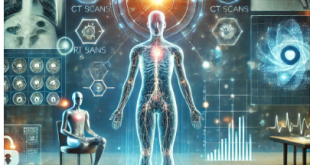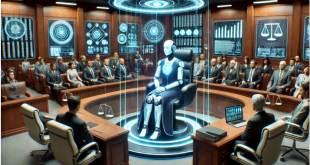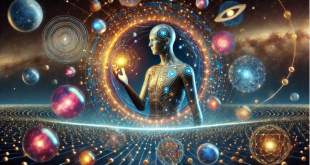Introduction
Once the dream of the future, Artificial Intelligence has now penetrated all aspects of life. Industries, technology, and even social patterns are under the influence of AI. AI has been growing continually in favor and promises break-out changes that would probably define our world in ways we can only begin to imagine. This article will discuss new prospective developments of AI in covering critical areas like health, education, work, and ethics.
AI in Daily Life:
Smart Cities and Houses
AI is making life easier, more efficient, and sustainable by enabling smart cities and smart homes. It will be able to manage the resources of cities of the future, monitor air quality, and manage traffic flow as an interlocking system. At home, AI will thus be weaved through personal environments, manages energy usage, and keeps the house secure.
Expected Key Innovations:
•The automation of cars taking away traffic congestion
•Smarter grids in the consumption of energy
•AI-driven virtual assistants on increasing personalization
Healthcare Revolution:
The New Medicine
This is revolutionary for health care. AI, through developed algorithms, will aid doctors in diagnosing diseases and associating relevant treatment options and even perform complex surgeries. In health care, the machine learning models can analyze vast amounts of patient data to predict illnesses, detect anomalies, and personalize treatments. AI’s ability to track patient records will enhance the outcomes of treatments and minimize human error.
Changes Predicted:
•AI-assisted early diagnosis for diseases like cancer and heart conditions
•Virtual health assistants monitoring patients remotely
• They employed robotic surgeries, therefore decreased human interaction
Workforce Changes:
Automation and Job Transformation
One of the most debated topics in AI has been whether it will cause unemployment. Although it automates repetitive tasks, new job roles with higher creativity, strategic planning, and complex problem-solving have emerged. Rather than displacing human workers, AI will augment human skills in fields such as customer service, data analysis, and marketing.
What the Future Holds:
• Increased automation of repetitive tasks to free humans for creative roles
• New job roles in AI maintenance, development, and ethics monitoring
• Shift in demand for skills toward more emphasis on technology literacy and ability to adjust
AI and Education
AI in schools is going to revolutionize the way of learning. That AI can provide well-personalized learning algorithms that adjust according to the pace, style, and needs of each individual student may further improve their strengths and focus on their weaknesses. It may even be that AI systems can automate administrative tasks that call for the attention of teachers themselves, giving them ample time to teach and mentor.
Changes Expected:
• The approach of learning platforms driven by AI changes according to what is needed by individual learners
• The experience of virtual reality allowing for the kind of hands-on, interactive kinds of learning
• Automated grading systems that help teachers to ease the burden on their shoulders
Ethical and Security Issues
As AI advances, there are ethical issues and security concerns. Questions about privacy, ownership of data, and the bias of an algorithm must be addressed to prevent the possible misuse of AI technology. Policymakers, developers, and the public must collaborate to determine guidelines that support responsible AI development and raise awareness.
Key Ethical Challenges:
• Bias in AI algorithms that cause discrimination or unfair treatment
• Risks to Privacy Due to Collecting Data
• The need for legislation to avoid abuse in surveillance and warfare
Conclusion
The future of AI is full of hope and challenges. Stepping into this new age, it is of utmost importance to tread through the development of AI with a thoughtful balance between innovation and responsibility. Through healthcare, education, or ethical considerations, AI will most definitely reshape our world, and only with joint effort can we maximize the benefits and minimize the risks.


